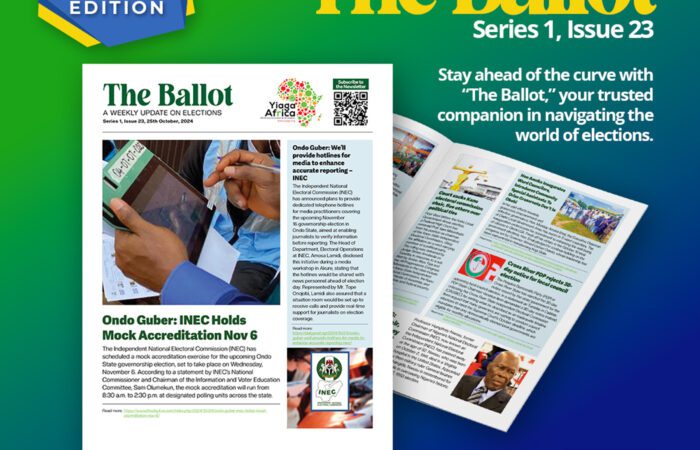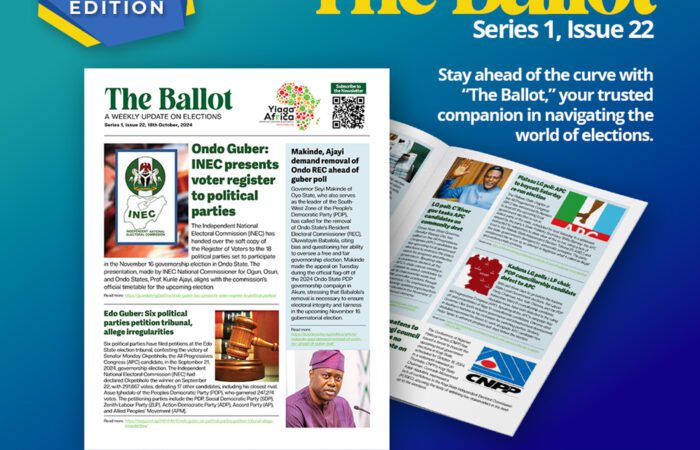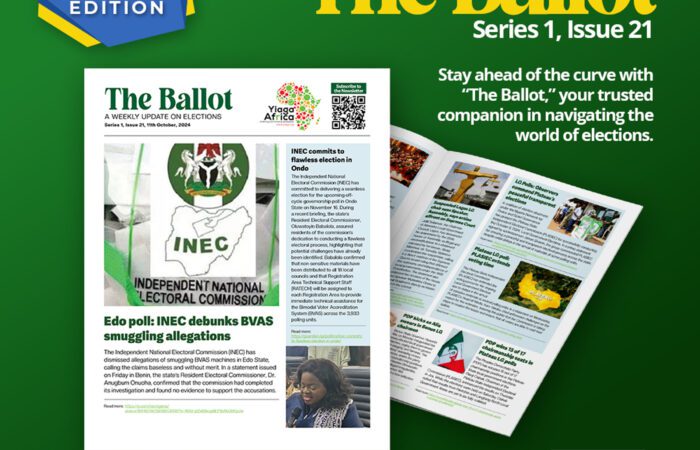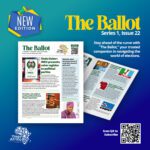Why are elections such a big deal? Why do they matter so much? Why do governments, political actors, civil society organizations, media, citizens and other critical stakeholders invest so much in the conduct of elections?
Elections are important for a variety of reasons. Far from being “just another civic exercise” conducted periodically, they provide a unique opportunity for citizens to have a sense of belonging in their society. This is because, through elections, citizens choose those who will represent them at various levels in government.
The major difference between a democracy and a dictatorship is that in the former, people come into power through an already established election system.
Nigeria’s electoral system, despite its shortfall, has continued to improve since the return to civilian rule in 1999. Elections in Nigeria have evolved from being an exercise marred by gross electoral fraud to one where an incumbent President can lose at the polls.
The appointment of Prof. Attahiru Jega as the INEC Chairman birthed a lot of electoral reforms such as the use of NYSC corps members as ad-hoc staff during elections, use of Direct Data Capture for voters registration as well as the use of smart card reader machines for elections. These reforms have helped to strengthen Nigeria’s electoral process.
In spite of the progress made in Nigeria’s electoral process, a noticeable gap remains. The lack of open data for elections remains a challenge in a modern world driven by technology.
This gap is what YIAGA intends to fill.
Since 2011, YIAGA has been involved in domestic and international election observation, and is thus, well versed in the complexities of election observation.
Election observers deployed to various parts of the country have limited time to observe and report the voting process. The observers are also pressed for time to quickly put out a full report of their observation. This report must not only be timely, it must also be credible and a true reflection of what happened in the field.
To address this issue, YIAGA has come up with an innovative strategy for improving election observation. That strategy is #WatchingTheVote.
How #WatchingTheVote Works
Cynthia Mbamalu, Programs Manager at YIAGA says #WatchingTheVote is a citizen-led election observation initiative aimed at enhancing the integrity of elections in Nigeria using technological tools like SMS and evidence-based research methodology tools for election observation.
The initiative is designed to promote credible elections and boost citizens confidence in the electoral process through the provision of citizens’ oversight on elections throughout the electoral cycle.
#WatchingTheVote relies heavily on the use of SMS to provide real-time election updates that validate the credibility of election results as well as elicit real time response from election stakeholders before, during and after elections.
Whereas regular election observation tends to focus merely on voting on election day, #WatchingTheVote will focus on all the phases of the election- pre-election, election, and post-election.
The pre-election phase will focus on an initial analysis of the political and security education in a particular state or the entire nation and the FCT for general elections. Watching the Vote at the pre-election phase will assess the level of preparedness for the election by the election management body, the security agencies and the electorates.
At the election phase, the assessment will begin on the eve of the election. Observers deployed to the Registration Area Councils (RACs) at various Local Government Areas to observe the arrival of the sensitive materials, the presence of security officials at the RACs, as well as the readiness of the poll officials for the election.
During the elections, observers will assess the entire accreditation and voting process, the conduct of poll officials and security agents, as well as compliance to electoral guidelines by officials and voters.
The post-election will audit the overall process, from how the election management body conducted the election, to the performance of security operatives as well as the relationship between the level of security deployment, voter turnout, and peacefulness or otherwise of the polls.
Watching The Vote And Election Observation
#WatchingTheVote was developed to aid the election process and improve electoral democracy. Leveraging on several years experience of election observation, YIAGA developed a comprehensive checklist to aid observers while on the field. The 38 questions on the checklist were designed for the different phases of the election. Using an integrated SMS platform, observers will assess the electoral process and send in their reports. Ms. Mbamalu says the purpose of this strategy is to ensure that a full report of the election is ready as soon as the election ends.
What Makes Watching The Vote Different
Web developer, Peter Ayeni, describes Watching the Vote as “a civic technology platform for the aggregation of citizens’ opinion about the electoral process”. He says that #WatchingTheVote has an open platform for the aggregation of tweets from different people across the country.
#WatchingTheVote website is user-friendly. Features such as ‘submit report’ allow observers and other citizens to submit eyewitness reports on election day. Citizens can also view already published reports about an election.
The tweets and trends will be analysed, and if need be, escalated. Furthermore, SMS reports from observers on the field will be vetted against trends on the election via social media platforms such as Twitter.
“For the public, every tweet with the hashtag #EdoDecides, #WatchingTheVote, INEC, Edo and other keywords will be analysed on our platform. Also, information received will be double checked for authenticity”, he says.
Cynthia Mbamalu says the difference between Watching the Vote and similar technologies is the wholistic approach it adopts.
According to her, #WatchingTheVote looks at different angles of the election and provides data that ordinarily may not be in the public domain, in an easy to understand format.
“On #WatchingTheVote website, we have done an analysis of the level of PVC collection, security deployment around the state, movement of sensitive materials from the INEC headquarters in the capital, as well as the estimated time of arrival at the several LGAs in the state. Watching the vote doesn’t just focus on voting alone. This is what is quite interesting about this strategy of election observation”.
Future of Election Observation In Nigeria?
Cynthia Mbamalu describes the future of election observation in Nigeria in three apt words: “more data, technology driven, and supporting every report with verifiable evidence”.
“#WatchingTheVote aims to take the lead in promoting a wholistic election observation and also provide data for comprehensive analysis and evaluation of the entire process. Edo election marks the initial deployment of this kind of election observation strategy. #WatchingTheVote will be deployed for all elections going forward”.
There is no gainsaying the fact that technology has revolutionized and continues to revolutionize the world as we know it. Advancement in technology and development of innovative ways of observation elections will help make the process better, more transparent and more credible. Indeed, with organisations like YIAGA leveraging on innovative technology, the future of election observation in Nigeria couldn’t be brighter.






